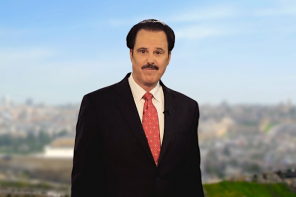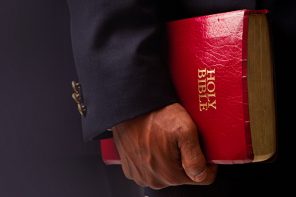John McCain is not an evangelical Christian and has never claimed to be. In fact, McCain had done his best to distance himself from the radical religious right in past elections. That’s something I’ve always found admirable about McCain – he’s a religious man, but, as NPR reports, he’s not a fanatic by any measure.
He’s an Episcopalian who has attended his wife’s Southern Baptist church for 15 years but has never been baptized. He cannot claim a personal “testimony” or conversion story. He almost never talks about his faith, and he did not respond to several interview requests from NPR.
When pressed, here’s how McCain has described his faith:
“I cannot tell you I’ve ever had a revelation from God,” he told Beliefnet. “It’s been … kind of a plodding—I pray, I receive comfort, I think I receive guidance. I know I receive guidance.”
Those are the words of a religiously humble man having an everyday kind of religious experience—one that plods, prays and tries to discern comfort and guidance from the God we seek to follow.
Then, politics entered the picture, and McCain learned quickly that he had to play to the radical religious right that dominates much of the Republican Party. That’s where Furman University professor says McCain’s lack of “theological nuances has gotten him in trouble.”
This year, for example, when the senator needed support from evangelicals, he gladly accepted endorsements from ultraconservative preachers Rod Parsley and John Hagee. Later, the media turned up Parsley’s views that Islam is an “anti-Christ religion.” And they found televised sermons in which John Hagee preached that God used Hitler to force the Jews out of Europe back to Israel.
Land says the controversy showed how little McCain knew the constituency he was trying to woo. “Both of these guys hold positions which anyone who knows evangelical life well would know would be problematic for someone running for national office,” Land says. “I think McCain and his advisers just didn’t know the lay of the land.”
McCain eventually rejected both endorsements. But his problems with evangelicals lingered, even after securing the Republican nomination.
McCain learned, however, how to woo the evangelical base by giving his short, rat-a-tat answers at Rick Warren’s televised candidate forum.
Warren asked: How would you approach evil?
“Defeat it,” McCain responded.
How to define marriage?
“A union between man and woman.”
When is a baby entitled to human rights?
“At the moment of conception,” McCain said. And with that, the auditorium erupted in wild applause.
Then, of course, there is the obvious pander of drafting Sarah Palin as the vice presidential nominee. A woman who supports a federal amendment banning same-sex marriage, opposes abortion, and is leaving the outcome of the election “in God’s hands.”
By contrast, Democratic nominee Barack Obama has kept his religion low-key, like McCain used to. Obama has been humble about his belief in God—insisting on his credentials as a Christian—but refusing to bend his faith into a pretzel for any bloc of voters.
In a year where “values” issues like same-sex marriage and abortion have taken a back seat to economic and other pocketbook issues, it seems that the original McCain, the one who struggles with a humble faith, would have fared much better in today’s political atmosphere.




